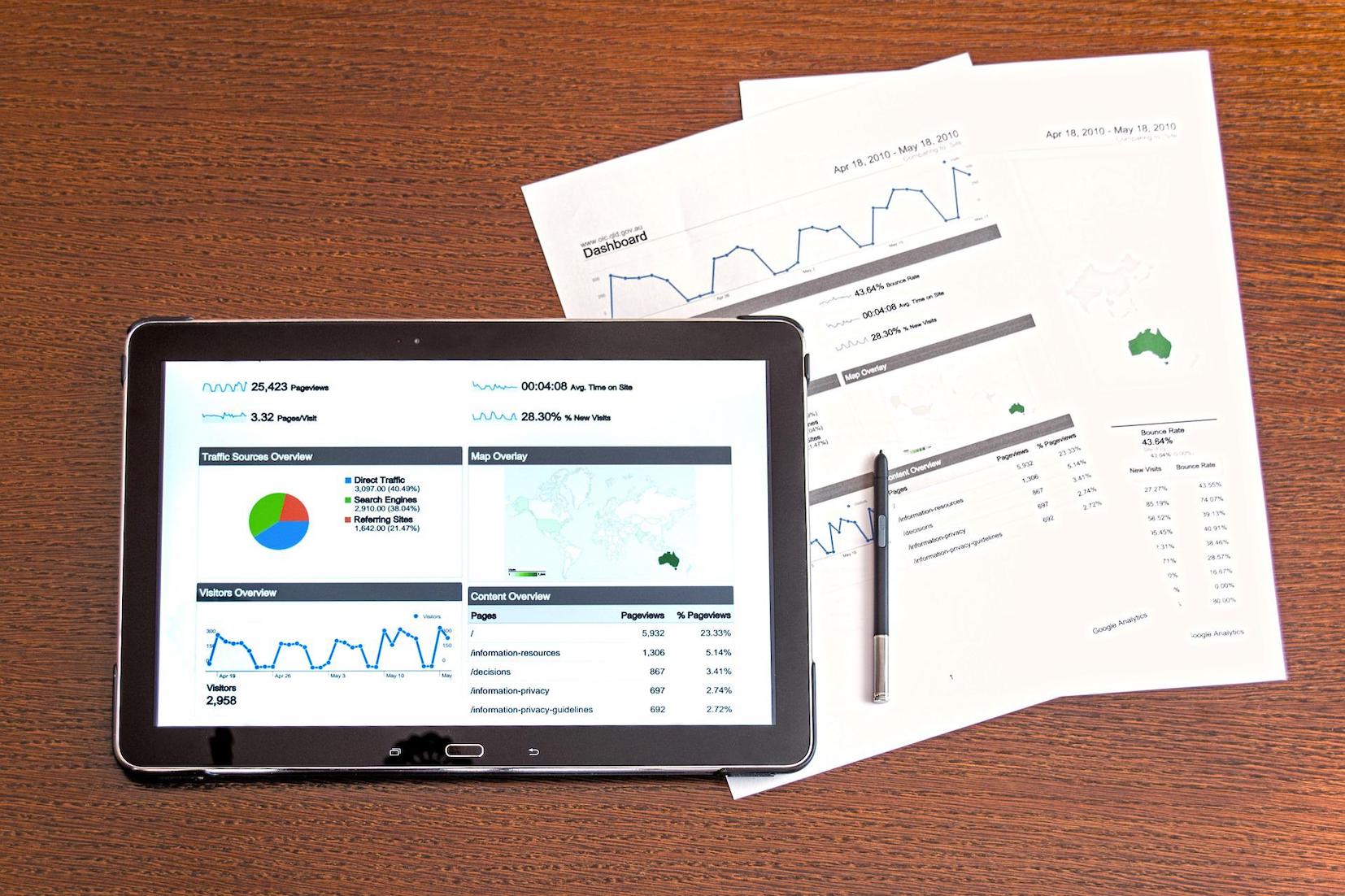Operating effectively in today's fiercely competitive market is quite a challenge. Companies must constantly monitor the market, recognise the conditions in which they will be operating and meticulously plan their activities - including planning the demand for specific products based on their analysis of the environment. Systems are used to create marketing strategies to achieve specific goals. marketing information. What exactly is marketing information?
What will you learn from the article?
In today's dynamic business world, marketing information plays a key role in the strategic planning of any company. Have you ever wondered what exactly it is marketing information and how can it affect the success of your business?
In the following article, you will discover how the system marketing information can assist your company in making more informed decisions. We will also provide some practical tips on how to use this tool effectively. Read on to learn more about the benefits of effective management marketing information.
- What is Marketing Information?
- Marketing information and strategic planning
- What is a marketing information system?
- Why is it worth using a marketing information system?
- Sources of marketing information
- The role of marketing information analysis in marketing
- What characteristics should an effective marketing message have?
- Types of marketing information
- What marketing information is most valuable for e-commerce?
What is Marketing Information?
Effective company management is an art. Art based on the constant collection and analysis of information from various sources. This information is the basis for creating well-thought-out, effective strategies that keep the company in the market and help it build a competitive advantage. Properly used, they are a guarantee of industry success.
Fundamental to marketing is marketing information. Marketing information is any data used in the company's marketing management process, bringing concrete knowledge that reduces risk in the decision-making process. Marketing information improve both strategic marketing (company objectives, action strategies) and operational marketing (marketing-mix configurations used).
Do you want to manage your company even more effectively?
We will propose the implementation of marketing activities that will help in this!
Marketing information and strategic planning
Marketing is undoubtedly one of the most important strategic management areas business. A decent marketing strategy is an important element of the functioning of any enterprise. The strategy sets goals, defines the way of achieving these goals, and also indicates the language communication with customers and the channels and means used to reach the audience. However, it is impossible to create an effective marketing strategy without adequate preparation. The key to success is a thorough analysis of the marketing environment, including the formulation of forecasts of possible market changes. Only on the basis of the data obtained in the analysis, i.e. marketing information, the objectives of the marketing activities are defined.
Marketing information is the basis for rational planning and strategic managementbecause they provide comprehensive data about the market, including competition, industry trends, target groups and other elements that may affect the direction of the company's development.

Many companies are developing special marketing information systems that streamline the flow of acquired information between specific individuals in the organisation and also systematise this information. What exactly is a system marketing information? And why should it be used?
What is a marketing information system?
In the Encyclopaedia of Management we can read that the system marketing information, or SIM, is "the totality of people, equipment, procedures and techniques for collecting, organising, processing and then making transparent and accurate information available in a timely manner to those making important decisions, with particular emphasis on marketing staff". In other words, it is a certain structure that allows the grouping of any marketing information, incoming to the company, as well as streamlining their transmission to people with important roles in the company - i.e. managers, marketing staff or others in the organisation involved in marketing activities. A logical, efficient system marketing information facilitates important marketing decisions.
The marketing information system is based on three main elements. These are:
- internal reporting - information obtained from secondary sources, i.e. data collected within the organization, e.g. data on the number and value of goods sold, inventory levels, profits, company operating costs, etc.,
- marketing interview - activities and sources used by marketing employees to better understand the market, e.g. blogs, books and industry publications, scientific articles,
- marketing research - various techniques for collecting and saving information from various sources, including research on external and internal phenomena, research related to the product, price, distribution, brand image research, the results achieved by the enterprise and others.

Why is it worth using a marketing information system?
The entire information system (also the marketing information) is an effective support in creating marketing strategies that deliver the expected results. Used appropriately, the information obtained reduces the uncertainty associated with making important and less important marketing decisions. In addition, it provides a basis for evaluating the broader marketing environment. They allow you to get to know the market, competitors, potential business partners and specific target groups, as well as accurately track their activities. Moreover, they identify and evaluate the strengths and weaknesses of the enterprise. This, in turn, allows you to create tailored marketing plans, based on real goals, and in the long run, build a competitive advantage.
Does your company need a system marketing information? Without a doubt! A well-thought-out, carefully prepared and properly implemented system is your ticket to great success in the market.
Sources of marketing information
Efficient marketing information comes from a variety of sources that provide valuable data on the market, competition and customer preferences. Key sources include marketing information include market research, sales analyses, industry reports and observations of consumer trends. The integration of this data into marketing information system enables companies to make informed decisions and adapt their strategies to the dynamically changing market environment.
The role of marketing information analysis in marketing
Data analysis plays a key role in transforming the collected marketing information into practical action. Thanks to advanced analytical tools, companies can identify consumer behaviour patterns, assess campaign effectiveness and optimise resource allocation. Use marketing information system allows ongoing monitoring of performance and rapid response to market changes. Integration of data analysis with marketing strategy is essential for competitive advantage and effective customer relationship management.
What characteristics should an effective marketing message have?
Efficient marketing information should, above all, be up-to-date to reflect current market realities and enable sound business decisions. The accuracy of the data is crucial, as erroneous marketing information can lead to ineffective strategies and financial losses. Message comprehensibility ensures that even complex data is interpreted unambiguously by all company departments. Consistency marketing information with other data sources in the organisation supports unified communication and strategy. The timely availability of information allows rapid response to market changes. Finally, the appropriate structure and presentation of data within the marketing information system facilitates their analysis and use in decision-making processes.
Types of marketing information
Marketing information take a variety of forms and are obtained from multiple channels, allowing for a comprehensive understanding of the market. Primary data, such as results from surveys or product tests, provide direct information from consumers. Secondary data, from industry reports or competitor analysis, offers a broader market context. Digital channels, including social media and web analytics, enable ongoing monitoring of customer behaviour. Traditional sources, such as trade press or trade fairs, continue to be a valuable source of marketing information.
What marketing information is most valuable for e-commerce?
In the e-commerce sector, the most valuable are marketing information on customer purchasing behaviour, such as data on abandoned baskets or product preferences. Analysis of demographic and behavioural data allows for personalisation of offers and communications, increasing conversions. Web analytics data, including traffic sources and purchase paths, helps optimise marketing campaigns. Customer feedback and reviews provide insight into brand and product perceptions, which is key to building trust. All of this data, integrated into marketing information system, support the dynamic and efficient management of an online shop.

